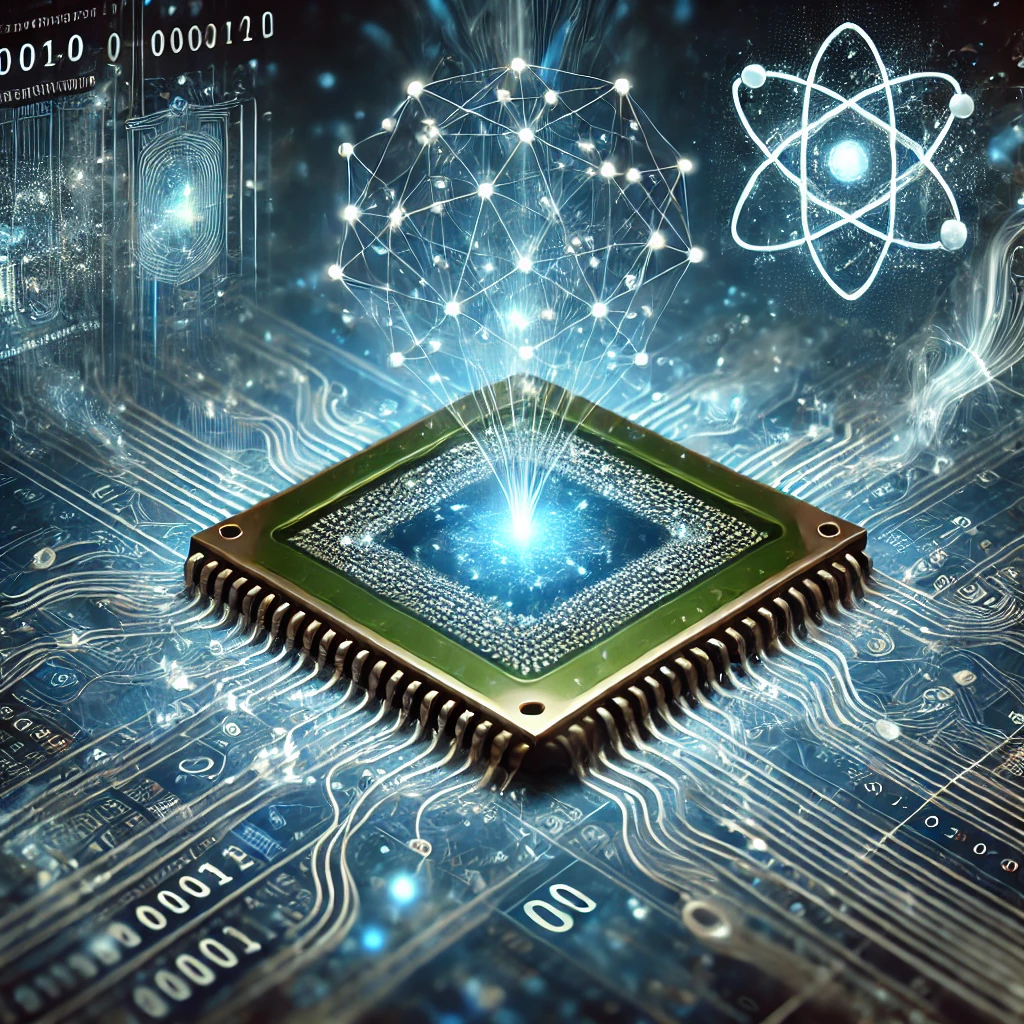Quantum technology is a field of science and engineering that leverages the principles of quantum mechanics to develop advanced applications in computing, communication, cryptography, and sensing. Unlike classical technology, which is based on traditional physics, quantum technology exploits the strange behaviors of subatomic particles such as superposition, entanglement, and quantum tunneling.
Key Principles of Quantum Mechanics in Technology
Superposition – A quantum particle (like an electron or photon) can exist in multiple states at the same time until it is measured. This allows quantum computers to process vast amounts of data simultaneously.
Entanglement – Two or more quantum particles can become interconnected, meaning a change in one instantly affects the other, regardless of distance. This is the foundation for quantum communication and quantum cryptography.
Quantum Tunneling – Particles can “tunnel” through energy barriers that classical particles cannot, which enhances performance in semiconductors and sensors.
Quantum physics, also known as quantum mechanics
Applications of Quantum Technology
Quantum Computing
- Uses qubits (quantum bits) instead of classical bits (0s and 1s).
- Capable of solving complex problems exponentially faster than classical computers.
- Used in cryptography, drug discovery, financial modeling, and artificial intelligence.
Quantum Cryptography
- Provides unbreakable encryption using quantum key distribution (QKD).
- Prevents hacking and ensures secure communication for governments and financial institutions.
Quantum Sensors
- Ultra-precise sensors for medical imaging, navigation, and climate monitoring.
- Used in defense and space exploration for highly accurate measurements.
Quantum Communication
- Enables instant and secure transmission of information using entanglement.
- Future-proof against hacking, making it ideal for national security.
Quantum computer
Quantum computer is a computer that exploits quantum mechanical phenomena. On small scales, physical matter exhibits properties of both particles and waves, and quantum computing leverages this behavior using specialized hardware.
Future of Quantum Technology
- Governments & tech companies (Google, IBM, Microsoft) are investing billions in quantum research.
- India has launched the National Quantum Mission (NQM) to boost quantum computing and communication.
- Expected breakthroughs in medicine, AI, cybersecurity, and energy in the next decade.
How Quantum Technology Helps in Medicine
Quantum technology is revolutionizing healthcare and medicine by enabling faster drug discovery, advanced imaging, precision diagnostics, and personalized treatments. By leveraging quantum mechanics, medical research and treatments are becoming more efficient, accurate, and effective.
Quantum Computing for Drug Discovery & Development
- Traditional drug discovery takes years due to the complexity of molecular interactions.
- Quantum computers can simulate and analyze molecules at an atomic level, identifying potential drugs much faster.
- Companies like IBM, Google, and pharmaceutical firms (e.g., Pfizer) are using quantum computing for cancer, Alzheimer’s, and COVID-19 drug research.
- Quantum computing utilizes principles of quantum mechanics, like superposition and entanglement, to perform calculations on specialized hardware, potentially enabling solutions to problems that are intractable for classical computers
Quantum Imaging for Better Diagnostics
- Quantum sensors improve MRI scans, ultrasounds, and X-rays, leading to higher resolution imaging with more details.
- Early detection of diseases like cancer, neurological disorders, and cardiovascular diseases becomes more precise.
- Quantum-enhanced imaging can detect tumors at earlier stages than conventional methods.
Personalized Medicine & Genetic Analysis
- Quantum computing helps analyze DNA structures and genetic patterns quickly.
- It can predict how individuals respond to different treatments, leading to personalized medicines for diseases like diabetes, cancer, and rare genetic disorders.
Quantum Sensors for Brain & Heart Monitoring
- Quantum sensors enable ultra-precise measurement of brain activity and heart function.
- Helps in detecting Alzheimer’s, Parkinson’s, epilepsy, and heart diseases at an early stage.
- Quantum magnetometers improve EEG (Electroencephalography) and ECG (Electrocardiography) for better monitoring.
Quantum Cryptography for Secure Medical Data
- Medical records contain sensitive patient data, requiring high security.
- Quantum encryption (Quantum Key Distribution – QKD) ensures unbreakable security for patient information and telemedicine platforms.
Future of Quantum Medicine
- Faster drug approvals, reducing development time from years to months.
- Quantum AI-powered diagnostics, making medical tests more accurate and accessible.
- Non-invasive early disease detection using quantum-based biosensors.
- Next-gen medical imaging, providing real-time 3D visualization of organs and tissues.
Quantum technology is set to transform healthcare, making treatments more effective, affordable, and accessible.

